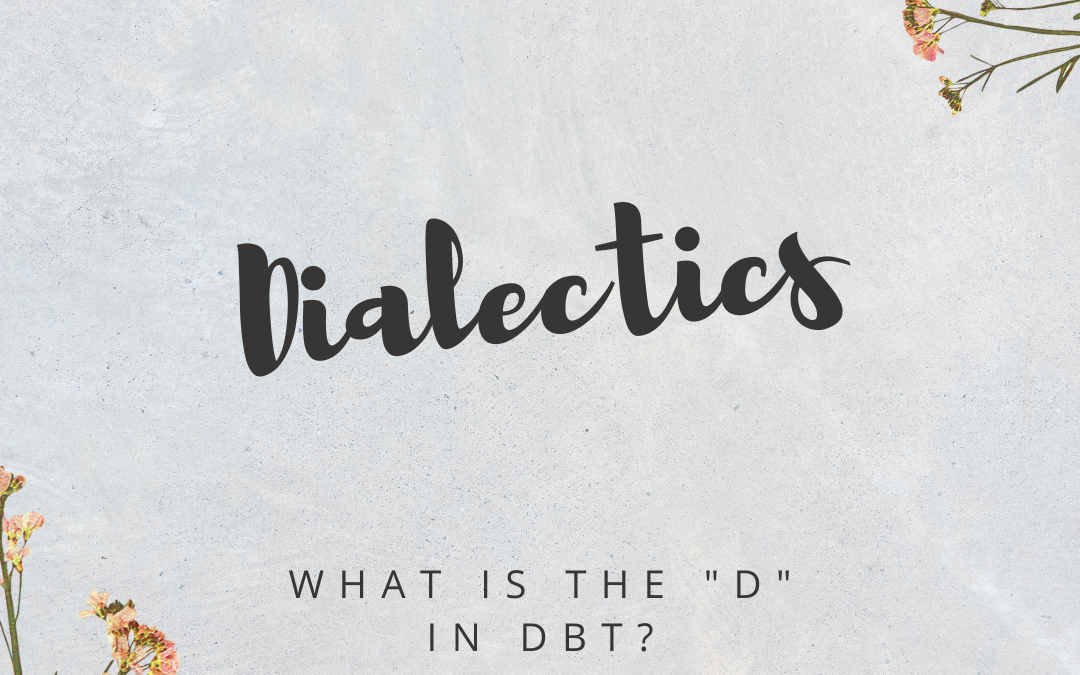Research from 2020 suggests that human beings experience approximately 6,000 thoughts a day (Tseng & Poppenk). With so much going on between our ears, might it be helpful to have a framework for examining our thoughts, and in turn, our lives? The practice of dialectical thinking or examining two, seemingly opposing sides of an argument, helps us carry out this investigation.
Where does Dialectics Come From?
First named by Socrates (469-399 BCE), dialectics is a back and forth process between two points of view. Some examples of dialectical thinking include change and acceptance, autonomy and dependence, transparency and protection, and trust and suspicion. While these things seem to be opposites, by examining the kernels of truth or validity of each side, we are able to formulate a deeper, more dialectical, or balanced, understanding of many topics. Let’s look at the example of a dialectical dialogue between having a routine (rigid) versus no schedule (flexible):
- Routine: Each day is planned, I know exactly what I’m going to do
- No schedule: Each day is open, I can do whatever I want to do
- Routine: I appreciate structure in my life, but sometimes I just want to do nothing!
- No schedule: I appreciate the freedom I have, but sometimes I want something structured to do!
- Synthesis: a day (or week, month, year, lifetime) with some planned moments and unplanned moments helps resolve the dialectic of routine (rigid) vs no schedule (freedom)
Dialectics as Therapy
Dr. Marsha Linehan, PhD, incorporated the philosophy of dialectics into Dialectical Behavior Therapy (DBT) to help people improve their wellbeing. By incorporating dialectics into therapy, clients learn more than one way to see a situation or how to solve a problem. During therapy, a trained DBT therapist helps a client consider perspectives from opposing sides and decrease rigid thinking or actions. DBT helps us increase validation of multiple perspectives and enhance flexibility in both our thinking, and in turn, our behaviors.
Understanding and uncertainty: dialectics in the search for truth
While Socrates’ student Plato (428-348 BCE) postulated that by engaging in dialectics, one can move closer to truth or understanding, German philosopher Immanuel Kant (1724-1804 CE) pointed out that “human thinking about ultimate reality must by its very nature fail to achieve wholeness, completion, and truth.” These two perspectives provide an example of a dialectic: dialectics helps us move to new, more helpful perspectives and increased understanding, however, part of the change we seek must be tempered by the acceptance that there may be no absolute answer or truth.
Therapy can bring us closer to something that works, while also teaching us to better tolerate the discomfort of sometimes not knowing.
By Dustin Miller, MSW
January 2023
References
Fosl, P.S. & Baggini, J. (2020). The philosopher’s toolkit: A compendium of philosophical concepts and methods. Wiley.
Linehan, M.M. (2015). DBT skills training handouts and worksheets. Guilford Press.
Tseng, J. & Poppenk, J. (2020). Brain meta-state transitions demarcate thoughts across task contexts exposing the mental noise of trait neuroticism. Nat Commun 11, 3480

